- Home
- Helen Dunmore
Talking to the Dead
Talking to the Dead Read online
PENGUIN BOOKS
TALKING TO THE DEAD
‘Dunmore is, without doubt, one of the most promising young writers around, combining a dazzling perceptiveness about the darker aspects of the human psyche with a heart-stoppingly compelling style’ Cosmopolitan
‘As beautifully written and as psychologically gripping as her award-winning A Spell of Winter’ Christina Koning, The Times
‘In her delicate, sensual prose, full of the scents and tastes of summer, Dunmore creates a poisoned idyll… with exquisite finesse she anatomizes the deadly complicity between Nina and Isabel – their bond of love and jealousy and intimacy and betrayal, almost too tightly knotted to unravel’-Jane Shilling, Sunday Telegraph
‘Dunmore is a poet, and it shows here in her marvellously exact eye for the telling detail, her relish of landscape, her wonderful capacity for sensual evocation of nature’ Michèle Roberts, Independent on Sunday
‘Seething with guilt, erotic tension and unvoiced accusations, this compelling novel is about the danger of things left unsaid… Dunmore paces the story to perfection, her flair for unusual imagery shining through the prose’ Gillian Fairchild, Good Housekeeping
‘Electrifying’ Val Hennessy, Daily Mail
ABOUT THE AUTHOR
Helen Dunmore has published nine novels with Penguin: Zennor in Darkness, which won the McKitterick Prize; Burning Bright; A Spell of Winter, which won the Orange Prize; Talking to the Dead; Your Blue-Eyed Boy; With Your Crooked Heart, The Siege, which was shortlisted for the 2001 Whitbread Novel of the Year Award and for the Orange Prize for Fiction 2002; Mourning Ruby and House of Orphans. She is also a poet, children’s novelist and short-story writer.
HELEN DUNMORE
Talking to the Dead
PENGUIN BOOKS
PENGUIN BOOKS
Published by the Penguin Group
Penguin Books Ltd, 80 Strand, London WC2R 0RL, England
Penguin Group (USA) Inc., 375 Hudson Street, New York, New York 10014, USA
Penguin Group (Canada), 90 Eglinton Avenue East, Suite 700, Toronto, Ontario, Canada M4P 2Y3 (a division of Pearson Penguin Canada Inc.)
Penguin Ireland, 25 St Stephen’s Green, Dublin 2, Ireland (a division of Penguin Books Ltd)
Penguin Group (Australia), 250 Camberwell Road, Camberwell, Victoria 3124, Australia (a division of Pearson Australia Group Pty Ltd)
Penguin Books India Pvt Ltd, 11 Community Centre, Panchsheel Park, New Delhi – 110 017, India
Penguin Group (NZ), 67 Apollo Drive, Rosedale, North Shore 0632, New Zealand (a division of Pearson New Zealand Ltd)
Penguin Books (South Africa) (Pty) Ltd, 24 Sturdee Avenue, Rosebank, Johannesburg 2196, South Africa
Penguin Books Ltd, Registered Offices: 80 Strand, London WC2R 0RL, England
www.penguin.com
First published by Viking 1996
First published in Penguin Books 1997
This edition published 2007
1
Copyright © Helen Dunmore, 1996
All rights reserved
The moral right of the author has been asserted
Grateful acknowledgement is made to Faber & Faber for permission to print the extract from ‘Autobiography’ published in Collected Poems by Louis MacNiece
Except in the United States of America, this book is sold subject to the condition that it shall not, by way of trade or otherwise, be lent, re-sold, hired out, or otherwise circulated without the publisher’s prior consent in any form of binding or cover other than that in which it is published and without a similar condition including this condition being imposed on the subsequent purchaser
ISBN: 978-0-14-193704-5
Chapter One
The new graves lie full in the sun, beyond the shadow of the church and the yew tree. Two of them are covered in plastic-wrapped flowers and raw earth. These graves won’t have stones for a while yet, because they must wait for the earth to settle.
There are a lot of things you need to know when someone dies, and you have to learn in a hurry, from people who are paid to teach you. They come up with hushed, serious faces and ask questions, and then they nudge you into finding the right answers. It’s no good saying nothing, because they only keep on waiting. It’s their job. Have you considered the twenty-third psalm? Had the deceased a favourite hymn? Was there any connection with the church? I knew what they meant by that. Were they going to have to write down a prompt card for the vicar, covered with useful, acceptable facts?
And how many will be coming back to the house? There’ll be a limousine for immediate family, of course, but perhaps other cars will be required in view of the rather remote situation. There were two of them standing there, noting down the requirements. One glanced at the other, and they gleamed with satisfaction at phrasing it all so well. But they were much too professional to smile. They sounded like estate agents who were selling us our own lives.
And then the food. After a funeral you have to eat, to prove you’re still alive. There are foods which are suitable, and foods which are not. The suitable ones turn out to be ham, or cold chicken. Quiche is very popular, and Australian wines. The unsuitable ones would be anything which required last-minute attention from drunk or weeping people. I was hungry myself. I ate the chicken sandwiches, and drank the wine.
I can remember every word that was said. I can remember staring at a big glazed ham, its rind scored into squares and glistening with syrup. I thought of how it would be sliced and fed to us after your burial. Someone was asking me if I would like fresh pineapple to garnish the ham, or tinned.
‘Will you want the coffin open, or closed?’
‘Some people,’ one of them whispered, ‘some people find it a great comfort actually to have seen. Not to have to imagine. It can be a great comfort.’
‘A great comfort,’ I say aloud now, taking the words out like stones from my pocket, tossing them into the quiet air.
It’s beautiful here, where you are. Tall brick and flint walls enclose the churchyard, but we’re high up, and beyond the walls I can look out to the blue line of the Weald. The air moves freely. It’s hot and dry and the earth smells like a body stretched out to bake in the sun. Bees have swarmed on the other side of the church. I went round just now, and saw them hanging there in a dark cluster under the roof. Stray bees zinged through the air towards the swarm, and their sound was dangerous, like water in a kettle which has nearly boiled dry. I came away lightly, scarcely breathing.
You are out in the sun, away from the yew tree. I remember once we were talking about why yew trees were planted in churchyards, and I told you that they were supposed to have powers to keep off evil spirits. You said that there was a good practical reason too. Farmers wouldn’t let their animals graze in any enclosure where there was a yew tree, so the graves were respected.
Your stone is firm. I know exactly how much it cost, and how many letters there are in the inscription. There is just your full name, the name you’ve kept since childhood. You didn’t want to change it when you married. Under your name are the dates of your birth and your death. No message, no reflection on your life. No clues at all. The only thing which might make anyone stop is the shortness of the time between the first date and the last. Someone might count up how long you’d lived, and wonder, and start to make up a story for you out of nothing.
People idling through graveyards always stop by the graves of the young. Hundreds of miles from here there’s another grave with the same surname on it as yours, a tiny grave in a steep cemetery above the sea. There’s a path through the cemetery which tourists use as a short cut down to the beach. They stop, read the inscription, the name and dates, and the two lines of poetry. Often there’s a jamjar of flowers left on the
grave. If the tourists have children with them, they’ll grasp their hands tightly as they walk on. I haven’t been there for years. None of us put those white daisies in the jar. Or did you? Did you leave those flowers there, and then stand looking down for a long time, thinking thoughts it’s too late to uncover now?
I can almost see you. If I turn my head to the black splash of shade under the yew, now, quickly, I’m certain I’ll see you. It’s noon, the white hour when ghosts walk, leaving no shadow. But I don’t turn my head.
There’s always a breeze up here. The graveyard is like the deck of a ship, tilted above the land and sailing. If I shut my eyes I can believe I feel the ground shiver. One after another the graves have been stroked down by the wind so that they lean, and then topple, and it’s hard to read them. But your stone is new and it’ll take time for the wind to bend it. I still can’t believe that you are here, near enough to touch if you weren’t covered. I can’t believe that if I dug down I would find first the quilting of earth, then the box, then you, yourself.
I lie down. I shut my eyes. I am in bed with you, warm with the warmth of night. I feel your long slender legs curled up behind me, your knees digging into my back.
‘Go to sleep.’
‘I am asleep.’
‘How can you be asleep when you’re talking to me?’
And then silence. We are both asleep, tipping into the valley of the big double bed. My legs are wrapped carefully around with sheets because I can’t bear the touch of the mattress’s navy-and-white striped ticking, through which poke the sharp ends of feathers. You help me to cover my legs each night.
‘Are you sure you can’t see any skin?’
‘Sure.’
We are both asleep. None of this has happened yet.
I am on your grave, the warm mound of it shaped to me like a body. But though I listen and listen, there’s no heartbeat. Your silence begins to soothe me. I could talk to you now, losing my words in the long grass, but it doesn’t seem to matter. All the questions I am desperate to ask you float off, as the world floats off just before sleep.
Chapter Two
I should have let the taxi take me all the way up to the house. I’ve packed more than usual, because I don’t know how long I’ll be staying, and the weather might change. I’ve brought some work stuff too – sketch pads, pencils, charcoal, inks. But only one camera. It feels strange to travel without my camera bag, the one I don’t dare let out of my sight for a second. In London, at home, I haul it between the sweaty filth of tube trains and the heat of flats, shops and offices. For weeks now it’s been the hottest summer I can remember.
I like the early mornings and the smell when the pavement is being hosed down outside cafés. I drink coffee at six and I’m out by seven when the sun’s fresh on my arms, water drips from petunias in lamp-post baskets, and vans whizz about full of new bread and newspapers with the print still damp on them. Then I know why I live in London. I’m on my way to meet someone for breakfast and what might just be a new, exciting piece of work. But by eleven the city’s used up and sweaty, and the new project’s turned out to be photographing someone’s summer playscheme for a community newspaper. I’m pushing at invisible barriers all the time, never quite getting the work I really want. What is it my pictures don’t do?
No need to think about that now. I shift my bag to the other hand and keep on up the track. It’s getting dark and all the white things look whiter still: the tall stiff flowers in the hedge, the moths and my skirt. The air smells unnaturally sweet. There are owls here, but I haven’t seen one. Isabel knows about them. A pair of barn-owls is nesting this year.
In a way it’s lucky I’ve got so much to carry, or I’d be running and then I’d arrive just the way I don’t want to arrive, hot and out of breath and anxious. And then Richard would be angry. Isabel can’t cope with other people’s emotions just now, he said. She’s not supposed to know he told me to come. She won’t like it; she’ll say it’s because it’s interrupting my life and making me lose commissions when I’ve worked so hard to build things up. As if I would want to be anywhere else but with her.
I was in the bath when the phone rang. I heard his voice cutting through the answerphone message: ‘Nina, if you’re there, pick up the phone. It’s Richard, it’s important.’ He knew I often left the answerphone on while I was working. I jumped out of the bath and grabbed the mobile and a towel, and covered myself even though he couldn’t see me.
‘What’s the matter? Is Izzy all right?’
‘For God’s sake, Nina, calm down.’
‘Has she had the baby?’
‘Yes, she’s had the baby.’
‘How is she, what is it, I mean –’
‘A boy. It’s a boy.’
‘A boy.’
I clutched the phone and drips of water ran down it. Isabel has a son. Even as I said the words to myself she grew older, more distant, passing through a door that swung shut in my face.
‘Yes. But I’m afraid it didn’t go quite as we hoped.’ I heard the tension in his voice now, in its curious flatness. I had imagined how I’d get this news so many times. Always it was Isabel phoning me, Isabel with the baby curled in her arm, both of them weary, but triumphant that they’d found one another at last.
I was glad it was a boy, not a girl. I hadn’t let myself know before now how much I didn’t want Isabel to have a daughter.
‘What’s happened?’
‘I can’t go into it all now. I’m at the hospital and they’re going to let me see her soon.’
‘Richard, why’s she in hospital? She was going to have it at home.’ I heard my own voice, stupidly accusing.
‘Well, she didn’t. Her uterus ruptured. They just got the baby out in time,’ he snapped, as if it was my fault. I was silent, trying to work out what these words mean. Uterus. Ruptured.
‘You mean she had a Caesarean?’
‘I mean she had a hysterectomy.’
‘Jesus.’
We were silent. I thought of the wooden hand-made rocking cradle, a stupid extravagance for one child.
‘It was all going fine,’ he said, ‘just as she thought it would. She wasn’t even lying down. The midwife was there, having a cup of tea with us while Isabel put some baby clothes to air. She couldn’t keep still, she kept moving round.’ He paused. ‘That track,’ he said. ‘I’ll make Wilkinson surface that effing track if it’s the last thing I do.’
Wilkinson is the farmer who owns their house. ‘Couldn’t the ambulance get down it?’ I asked.
‘There wasn’t time to wait for an ambulance. I drove and the midwife went in the back of the car with her.’
‘But she’s all right,’ I stated. It wasn’t bathwater on the phone now, it was sweat from my hands.
‘She’ll be all right,’ said Richard. He threw the monosyllables at me as if they were balls he was bowling too fast. But cricket isn’t Richard’s game. Richard is three-quarters Irish by blood. Maybe you’d guess it from his eyes, which are bluer than English eyes, and they go with dark hair and skin rather than English fairness. Or you’d guess it from a concentration in his features, which makes them look as if they’ve been pushed together. He’s a big man, over six foot tall and bulky too. He makes me jump when I come on him suddenly in the house.
I didn’t know the right questions to ask. I don’t know anything about birth, or babies. I listened to the telephone silence and told myself that Isabel was safe in hospital, being looked after. No one dies of having a baby nowadays, even if things go wrong. In a few days she’d be home.
I could smell the hospital, as if I were there too. I saw Isabel flat out on one of those trolleys, her face knocked sideways by pain and her eyes closed. Her stomach was hollow where they’d taken out the baby. Her womb had gone too, that grown-up thing that bled three years before mine did. The wheels squeaked and two men shoved her down the corridor, very fast, towards a lift. In the doorway behind, dwindling, Richard watched too. I knew how he would look
angry, and helpless too.
‘I’ll come down,’ I said, ‘I can be there in less than three hours.’
‘There’s no point in you coming now. I’d planned to have this week off anyway. But I’m in Korea next week and she’ll need someone then. She’ll only just be out of hospital.’
My mouth opened to ask him if he couldn’t cancel the trip to Korea, and then shut again. Richard is an economist who specializes in developing computerized models for fast-growth economies. There is not much work for him in Europe. Apparently he is accomplished, single-minded and indispensable in his field. I haven’t heard this from Isabel, who never talks about Richard’s work, but from an article in the Financial Times which said that if Maynard Keynes were reborn now he would be Richard.
‘Of course I’ll come. I’ll come whenever Isabel needs me.’
‘Good.’
My hands shook as I jabbed the phone’s aerial down into its skull and put it on its rest. I had a pain in my throat, as if talking to Richard had hurt me. I found I was clutching my towel tightly round me. Deliberately, I unclenched my fingers and let it fall. There was my stomach, pale and whole. I thought of Isabel’s brown summer belly, her deep navel. I touched my skin and ran my hand across it to feel that it was unscarred. Then I went straight into the kitchen, cut a thick crust of a fresh white loaf, smeared it with butter and then with apricot jam, and ate it fast, cramming it into my mouth. There was sweat on my forehead so I wiped it off and kept on eating. I was not going to let myself think of the things Richard had said, not yet.
It’s nearly a mile up the track from the road to Isabel’s house. By now I’m walking more slowly, prolonging the moment of not having arrived yet. Usually I do this because I find that holding myself back from something I long for only adds to the pleasure I get in the end. But this time the reason is different. I’m afraid I’ll make a mistake. Say the wrong thing, touch her when she doesn’t want to be touched, admire the baby when all she cares about is the other babies, the ones she can’t have any more. I can be clumsy sometimes. Richard makes me feel that I am clumsy most of the time. There is too much of me for him.

 The Ingo Chronicles: Stormswept
The Ingo Chronicles: Stormswept The Deep
The Deep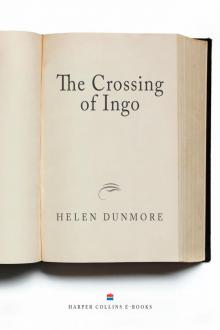 The Crossing of Ingo
The Crossing of Ingo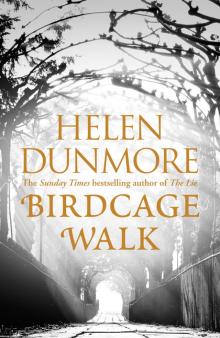 Birdcage Walk
Birdcage Walk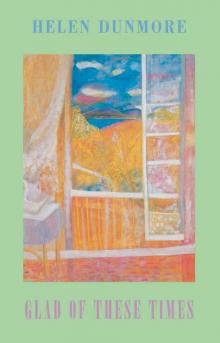 Glad of These Times
Glad of These Times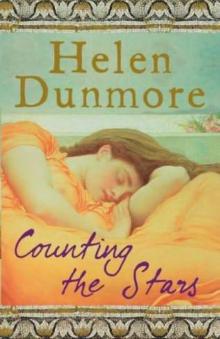 Counting the Stars
Counting the Stars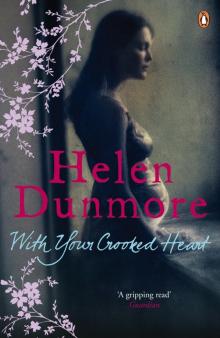 With Your Crooked Heart
With Your Crooked Heart Burning Bright
Burning Bright House of Orphans
House of Orphans Mourning Ruby
Mourning Ruby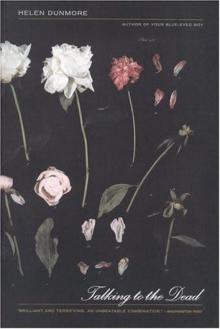 Talking to the Dead
Talking to the Dead Exposure
Exposure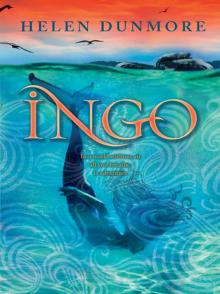 Ingo
Ingo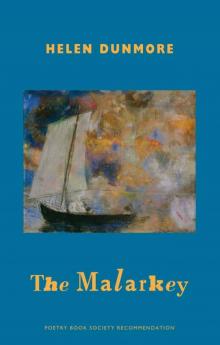 The Malarkey
The Malarkey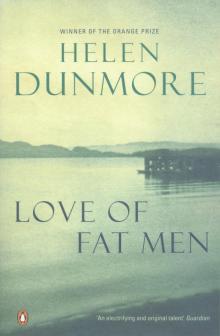 Love of Fat Men
Love of Fat Men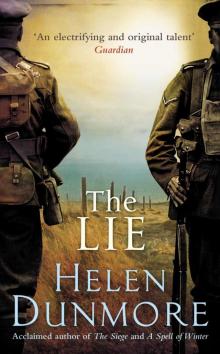 The Lie
The Lie The Siege
The Siege Inside the Wave
Inside the Wave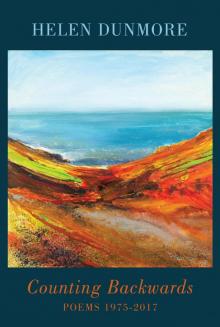 Counting Backwards
Counting Backwards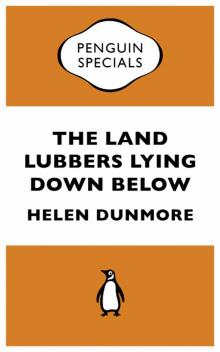 The Land Lubbers Lying Down Below (Penguin Specials)
The Land Lubbers Lying Down Below (Penguin Specials)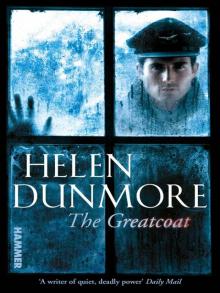 The Greatcoat
The Greatcoat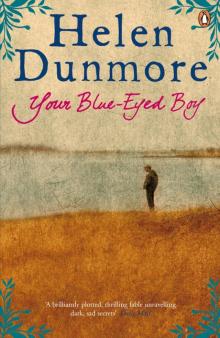 Your Blue Eyed Boy
Your Blue Eyed Boy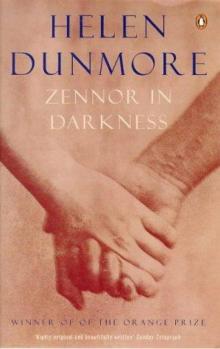 Zennor in Darkness
Zennor in Darkness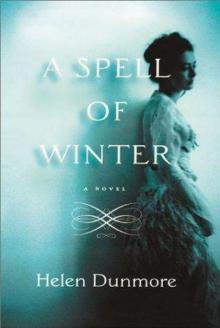 Spell of Winter
Spell of Winter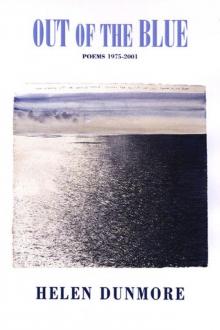 Out of the Blue: Poems 1975-2001
Out of the Blue: Poems 1975-2001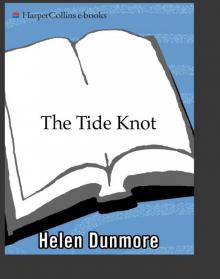 Tide Knot
Tide Knot The Betrayal
The Betrayal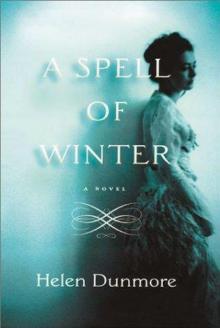 A Spell of Winter
A Spell of Winter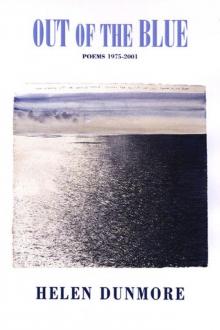 Out of the Blue
Out of the Blue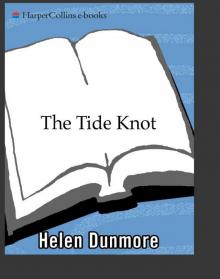 The Tide Knot
The Tide Knot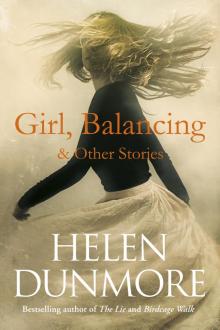 Girl, Balancing & Other Stories
Girl, Balancing & Other Stories Betrayal
Betrayal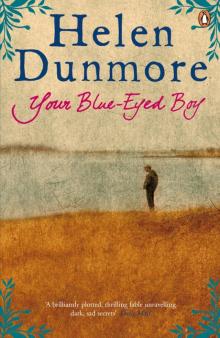 Your Blue-Eyed Boy
Your Blue-Eyed Boy